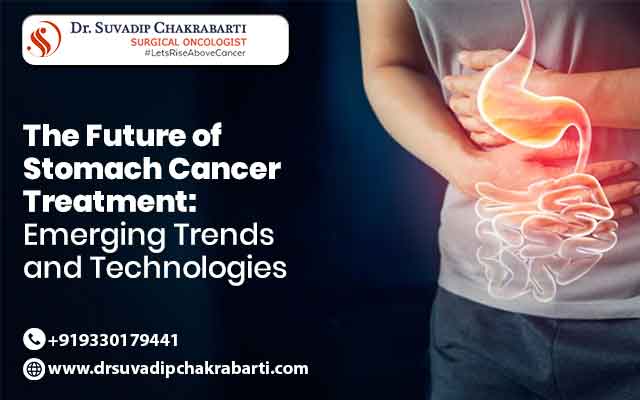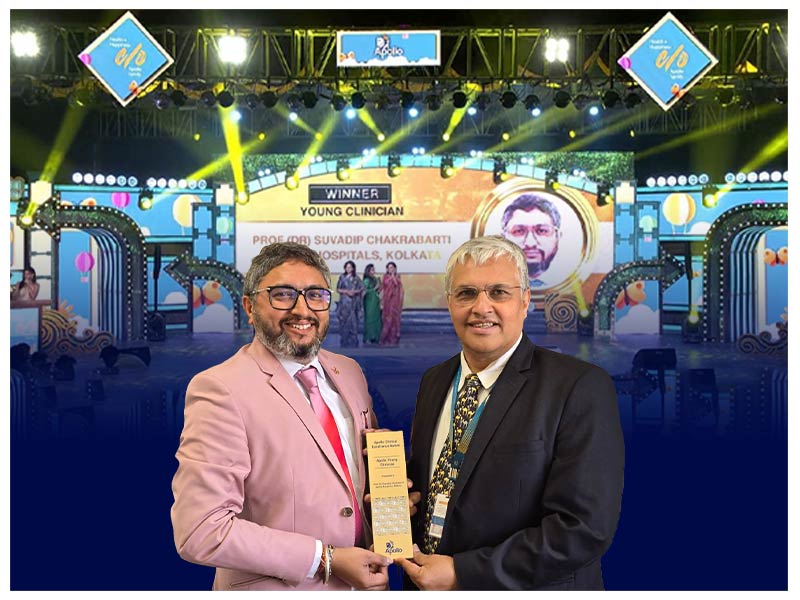Stomach cancer or gastric cancer remains a significant health concern globally. However, the landscape of its treatment is evolving rapidly, offering new hope for patients. Let’s discuss the advancements shaping the future of stomach cancer treatment, exploring emerging trends and technologies with immense potential for success in procedures such as CRS for stomach cancer in Kolkata.
Dr. Suvadip Chakrabarti states that the future of stomach cancer treatment holds immense promise, with the potential to improve patient survival rates and quality of life. With continued research and innovation, we can move closer to a future where the disease becomes treatable and manageable, offering global hope to patients and their families.
Cytoreductive surgery (CRS) and Hyperthermic Intraperitoneal Chemotherapy (HIPEC)
CRS is a complex surgical procedure that aims to remove as much visible cancerous tissue as possible during surgery for stomach cancer. This often involves removing the entire stomach (gastrectomy), surrounding lymph nodes and other affected organs or tissues in the abdominal cavity if necessary. The goal is complete cytoreduction, leaving no macroscopic (visible) tumour burden behind.
On the other hand, HIPEC is a specialised treatment often performed in conjunction with CRS for stomach cancer with peritoneal involvement (spread to the lining of the abdominal cavity). During HIPEC, heated chemotherapy drugs are circulated directly within the abdomen, targeting microscopic cancer cells that may remain after CRS and potentially improving long-term outcomes.
The combination of HIPEC and CRS for stomach cancer in Kolkata is a multidisciplinary approach requiring collaboration between highly skilled surgeons, medical oncologists and other healthcare professionals. While offering potentially improved survival rates and disease control compared to traditional chemotherapy alone, it is also a complex procedure. It requires careful patient selection and management by an experienced healthcare team.
Personalised Medicine
One of the most significant trends is the rise of personalised medicine. An oncologist specialist in Kolkata can tailor treatment plans to target specific cancer variations by analysing individual patients’ genetic and molecular profiles. This approach holds incredible promise, potentially improving treatment efficacy and reducing side effects.
Artificial Intelligence (AI)
AI plays a significant role in various aspects of cancer care, including stomach cancer. AI algorithms are being utilised to analyse complex medical data, such as imaging scans, to improve early detection and diagnosis of stomach cancer. Additionally, AI can assist in predicting patient responses to specific treatments, allowing for personalised treatment selection.
As Dr Suvadip Chakrabarti says, these emerging trends including CRS for stomach cancer in Kolkata and other technologies that offer a promising outlook for the future of treatment in this field. While challenges like drug resistance and access to advanced therapies remain, the ongoing research and development in this field are paving the way for a future where stomach cancer is not only treatable but also potentially preventable. Encouraging early detection and increasing access to these advancements is crucial to ensure that everyone benefits from the progress in stomach cancer treatment.


